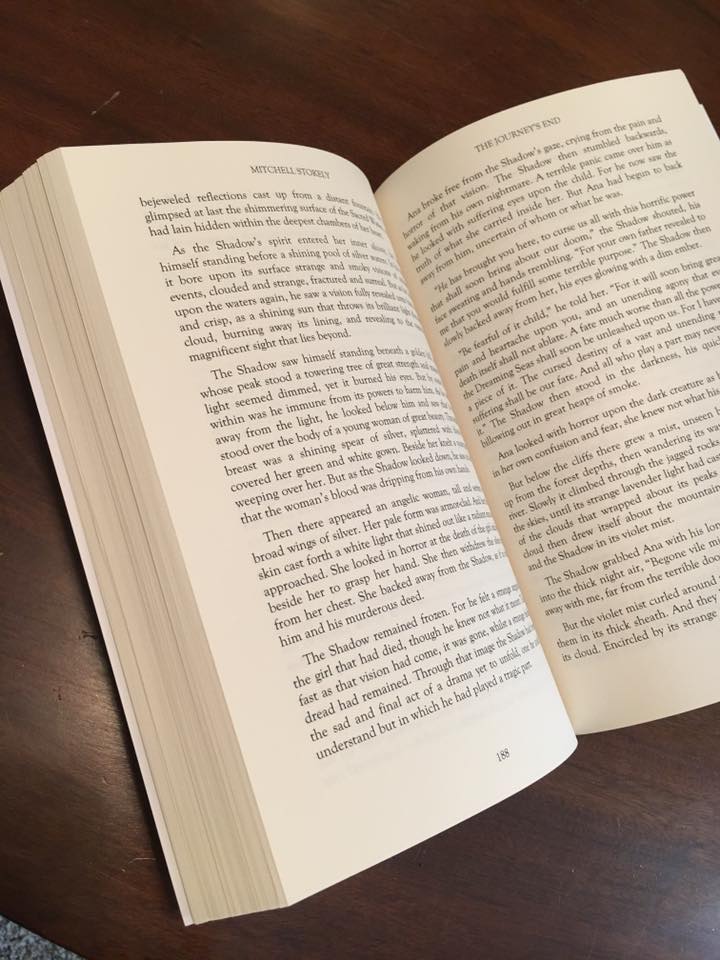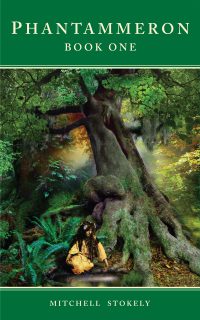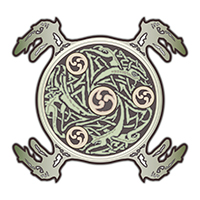The idea of writing novels in poetic prose did not originate in the Phantammeron. But when I started writing my novels I set about designing a “new” form and format unique to “higher” fantasy – something approaching a “mythic” form of expression. I then naturally fell into a longer writing style reminiscent of what I now call “poetic prose”.

If you start Googling the words ‘prose’ and ‘poetry’ combined you find the more common expression prose poem, but little on its antonym, ‘poetic prose’. A prose poem is not poetic prose. The former is a poem written in a free style form, while the latter, “poetic prose”, is prose imbibed with some type of deeper poetic expression. The latter form is not so well defined simply because it’s not well known or understood.
That’s why I take a tiny bit of credit in trying to articulate this form a bit more in my own work, the Phantammeron.
Reading 19th century writers, I have always felt a higher sense of the English language; an understanding of certain sides of it that’s lost in today’s modern usage. Poetic prose and its challenged medium seemed a perfect expression of that that lost history. At the same time the Modern world has given us awareness, the intent and psychology behind why we say what we say, and an understanding of how much deeper language can go. Yet in the search for clarity, drama, and realism, modern novels have all but abandoned poetic form in novels today so that readers might speed through the narrative and resolve the plots.
Yet I’ve always felt something was lost in fiction books growing up as a young man. The break with the Victorian Age or Romantic Age seems to have left us with a use of language that feels disconnected from the world of Nature and the world on some level that’s sad, distant, soulless, and hollow.
It was the ability to approach the mystical through language, seeing visions through it and walking into the hidden beauty expressed behind language, that interested me in trying to write poetic prose. And so I looked at 19th century poetics more so than modern fiction authors for inspiration.
That’s when I started looking at my writing as something “beyond the words”; writing as having a flow, a meaning, a visual that’s heightened by the rhythm of words. And it felt needed, as if the mythic stage I was trying to describe had to have that style of writing if it was going to stand on its own two feet and express something more real to me and my readers.
To write poetic prose is simply about writing with poetic expression. It’s about the use of symbology, colors, allusions to Nature, and old world ideas that try and escape the Modern limited concrete world of character development of gutted dialogue. Poetic prose is about abandoning narrative bound to Modern Realism so you may fly off into the transcendental world of Fantastic Idealism. It’s about the Greek theme of writing to stir up the Gods, connecting the reader to higher expressions in the language that escape the material and connect with more divine and primal concepts inside. Its writing about beauty, ugliness, of light and dark, of primal Nature, of forgotten time and eternal timelessness, of the inner meanings behind story and it’s fantastic machinations, and of the fleeting and fragile nature of life through a carefully chosen language. Poetry often hides behind these sublime and often sad truths about life.
But the traps found in using poetic prose I found often involve the Modern readers disinterest in what feels like flowery, disingenuous, rhythmic prose. On the surface it felt artificial and naive, distracting even. That concept I found then started to erode the narrative of the story and disconnect the reader from it. To combat that problem I intentionally removed “big words” and unconventional language rarely seen in Modern English use today. I also simplified very large sentences and tried very hard to see what I was actually saying versus what I meant to say in the prose. That’s not always easy. Any writer knows this.
But the disinterest in use and exploration of poetic prose much less reading of it may be its downfall for many in the end. It is simply one form of writing that has the ability to both elevate the story but also distract from it if the ideas expressed by it are not fully understood by readers. For poetry by its nature always has subjective meaning. In that sense poetic prose comes with a certain level of risk for writers. It was a risk I was willing to take, but I doubted few others would in the future.
It is why I’ve started to fine tune my ideas about poetic prose and its use in writing mythopoeia, possibly going even farther than Tolkien in articulating poetic prose as a medium in itself in helping to materialize mythopoeia and mytho-poetic writing styles. Because my own education in language is poor and very limited, it’s had me pull back from really ornamental Victorian Age language and conceive of poetic prose as something greatly simplified for Modern readers, something more digestible or palatable.
In that sense I’ve pulled back a lot of my interest in pushing it farther, and really building poetic prose as more of a sub-style of prose rather than a completely new medium. I’m sad about that as I think if pushed further it could change how novels are written. But that may be a thing for future, younger writers to embrace. Pushing poetic prose farther is going to take some skill and some acceptance that our Modern culture currently does not care to have. Its attention span, thanks to the Internet, is at an all-time low.
With the advent of this new Metamodern Age however, where there appears to be a return to some limited level of neo-Romantic views, it may be possible. I still feel poetic prose has some hidden value that’s not found in Modern prose that some people may be seeking from language that allows us all to escape the crude often crass Modern World of pulp and pop culture language that feels stripped of beauty and meaning. It just might allow us to return to a richer use of language that connects us with the deeper mythology inside us.
Here is a sample of poetic prose from the Phantammeron novels:
“These gardens still so fair, so sweet, no feet had yet trodden nor hands dare touched, its fruits no lips yet tasted, its unnumbered buds and blossoms unwithered and unwasted, a virgin beauty still unblemished yet spread open to the skies. Bravely this land had withstood as by some overseeing power the brutal night that had sought to penetrate it wonders and plunder it, sundering it from its father’s light.
But with springtime’s fever upon it, with youthful passion Abrea had glistened in the vibrant air, full and fertile, calling as to a secret lover from afar, whispering wistfully upon the perfumed winds word of its own abundance fully unleashed and laid bare to be but loved in all its blossoming glory.”
– the Author
Created Feb 18, 2017, 4:22 PM



